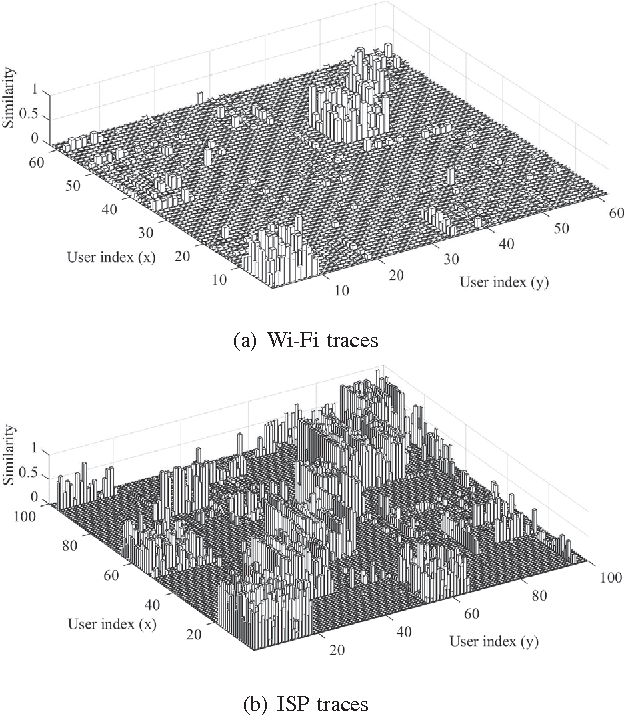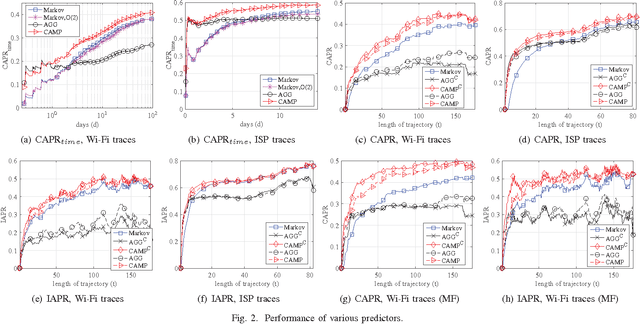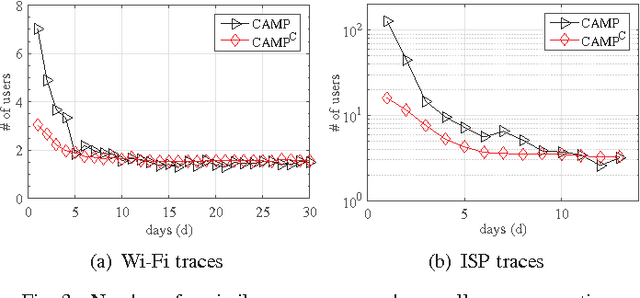Cluster-Aided Mobility Predictions
Paper and Code
Jan 21, 2016


Predicting the future location of users in wireless net- works has numerous applications, and can help service providers to improve the quality of service perceived by their clients. The location predictors proposed so far estimate the next location of a specific user by inspecting the past individual trajectories of this user. As a consequence, when the training data collected for a given user is limited, the resulting prediction is inaccurate. In this paper, we develop cluster-aided predictors that exploit past trajectories collected from all users to predict the next location of a given user. These predictors rely on clustering techniques and extract from the training data similarities among the mobility patterns of the various users to improve the prediction accuracy. Specifically, we present CAMP (Cluster-Aided Mobility Predictor), a cluster-aided predictor whose design is based on recent non-parametric bayesian statistical tools. CAMP is robust and adaptive in the sense that it exploits similarities in users' mobility only if such similarities are really present in the training data. We analytically prove the consistency of the predictions provided by CAMP, and investigate its performance using two large-scale datasets. CAMP significantly outperforms existing predictors, and in particular those that only exploit individual past trajectories.
 Add to Chrome
Add to Chrome Add to Firefox
Add to Firefox Add to Edge
Add to Edge